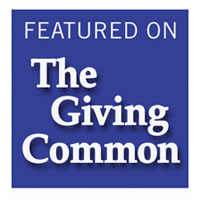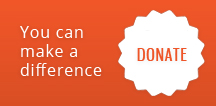 The YWCA’s Sexual Assault and Rape Crisis Services work to help survivors regain a sense of control and power over their own lives and to understand that they are not at fault. Along with counseling, the YWCA offers community education to encourage support for survivors, help for teens to understand healthy relationships and how to recognize an unhealthy and abusive relationship, and we work toward ending sexual assault in our community. YWCA SAFEPLAN Advocates are also available every day that courts are in session to assist survivors in the process of obtaining protective orders and other legal supports, as well as connect them to vital YWCA and other community services.
The YWCA’s Sexual Assault and Rape Crisis Services work to help survivors regain a sense of control and power over their own lives and to understand that they are not at fault. Along with counseling, the YWCA offers community education to encourage support for survivors, help for teens to understand healthy relationships and how to recognize an unhealthy and abusive relationship, and we work toward ending sexual assault in our community. YWCA SAFEPLAN Advocates are also available every day that courts are in session to assist survivors in the process of obtaining protective orders and other legal supports, as well as connect them to vital YWCA and other community services.
All services are free and confidential.
Anyone in need of Sexual Assault or Rape Crisis services may call the YWCA during the day from 8:30 a.m. to 5:00 p.m. at 978.374.6121. After hours, you may call our 24-hour hotline at 877.509.YWCA (9922).
What is sexual assault or rape?
Sexual assault is any forced or coerced sexual activity or which occurs without mutual consent.
Sexual assault is a violent crime, whether or not it involves physical force. It stems from a desire to hold power over another person. Rape is a legal term in Massachusetts. It is defined by 3 basic elements: penetration of any orifice by any object; force or threat of force; and penetration against the will of the victim. Anyone can be a victim of sexual assault or rape.
The YWCA’s services are free and confidential. Here is how we can help:
- The YWCA staffs a 24-hour confidential hotline offering support for survivors of rape, sexual assault or incest.
- YWCA staff will accompany survivors to the doctor’s office, emergency room, police or courts. We work closely with Lawrence General Hospital, which offers the only Sexual Assault Nurse Examiner’s (SANE) program.
- YWCA individual and group counseling is offered to survivors, non-offending family members and partners.
- We also provide referrals and other professional support services within the community.
- Our Court Advocates help survivors navigate the legal system when seeking protective orders or other legal remedies.
- YWCA in-school education programs reach more than 1,400 middle and high school students each year who learn about healthy relationships and teen dating violence.
- YWCA community education programs can be specialized to meet the needs of different audiences and work to help the community put an end to sexual assault and rape.
How do I know if I am eligible for YWCA Rape and Sexual Assault services?
- The YWCA program serves women, men and teens ages 13 and older who live in the following communities: Amesbury, Beverly, Danvers, Essex, Gloucester, Hamilton, Ipswich, Lynn, Lynnfield, Manchester, Marblehead, Merrimac, Nahant, Newbury, Newburyport, Peabody, Reading, Rockport, Rowley, Salem, Salisbury, Saugus, Swampscott, Topsfield, Wenham, and West Newbury.
- If you live outside of these cities or towns, you may choose to work with the YWCA, or ask us for a referral in your area.
- Services are available free of charge and are open to survivors, as well as non-offending friends or family members who may also need support.
- The first step can be a call to the hotline at 1.877.509.YWCA (9922) where you will speak with a trained counselor, who will listen and provide you guidance towards the path of healing.
How do I know if I need help?
It is important to know that you are not at fault for what happened. Although ever person is different, sexual assault and rape survivors often report a wide range of feelings or reactions, including:
- Feelings of sadness, grief, anger, shame or fear
- Feelings of powerlessness, isolation or anxiety
- Changes in sexuality, intimacy or appetite
- Substance abuse
- Suicidal thoughts
- A spiritual or religious crisis
- Flashbacks or sleep disturbances such as nightmares
These feelings may come and go, sometimes over the course of many years. YWCA counselors are trained to help survivors and non-offending loved ones towards the healing path.




